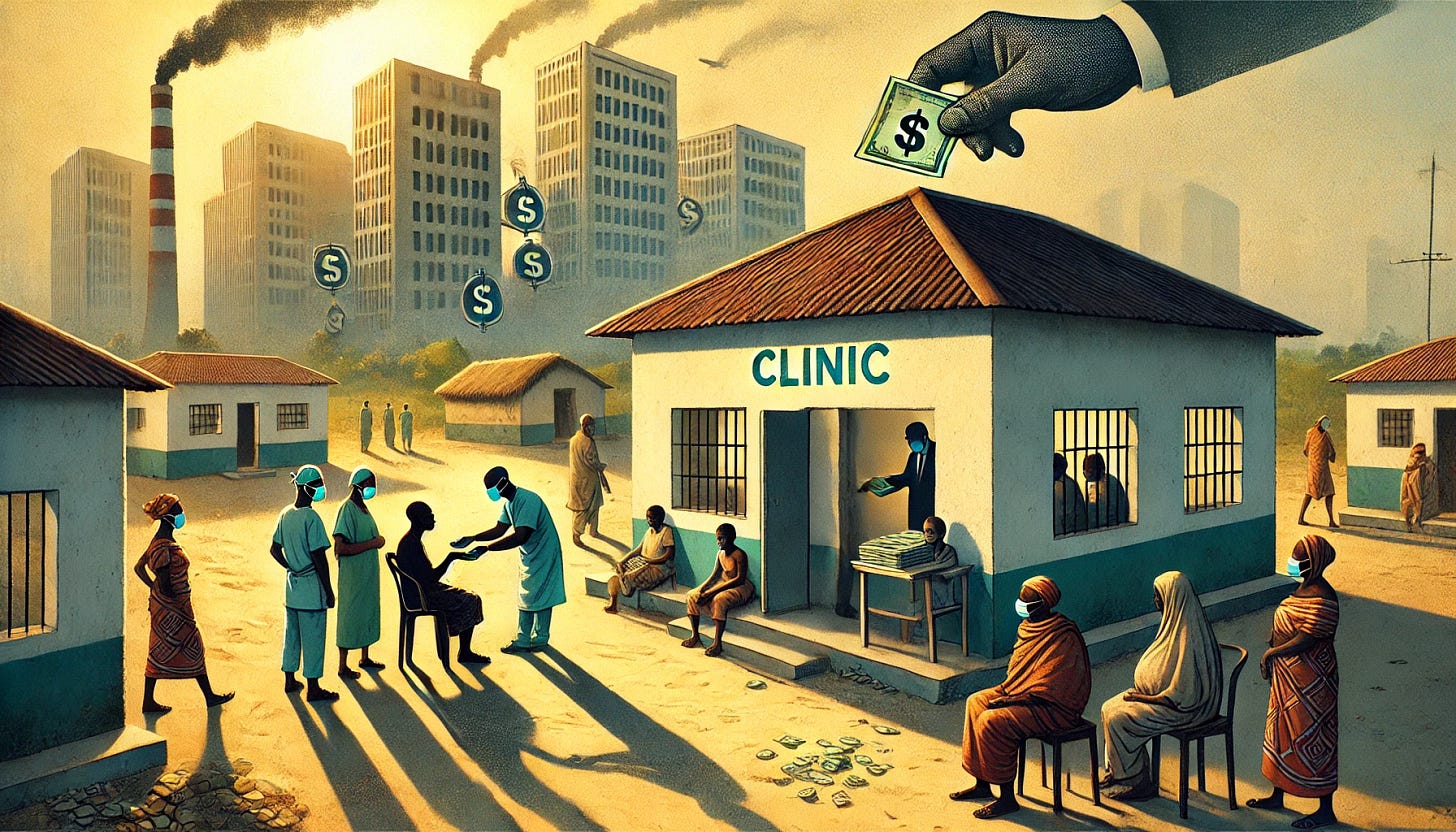Global Business Roundup: October 21–27
A silent epidemic, corruption jail sentences, and deepening capital markets
What has the World Bank been up to recently?
The World Bank recently published their Annual Report 2024. According to the report, in 2024, the Bank committed $117.5 billion in loans, grants, equity investment, and guarantees to partner countries and private businesses. The majority of this was to Africa, to which the Bank committed $38 billion. Interestingly, the Bank’s major commitments this past year have been towards the public administration sector, with a focus on environment and natural resources management. Ukraine was one of the Bank’s top country borrowers in 2024 with commitments of around $4.1 billion.
On to this week’s GBR
In remote parts of eastern Congo, a new variant of the Mpox virus, known as Clade Ib, is infecting children disproportionately. Though Clade 1b was first detected over a year ago, this past August, the WHO declared the epidemic a public health emergency. Unlike previous outbreaks, 80 percent of epidemic-related deaths in Congo have been among children. Despite government’s pledging that they would be better prepared for the next epidemic, vaccine inequality is as apparent as ever. Congo has been promised 3 million doses of a vaccine that can be administered to children, but are still yet to receive them.
To learn more about anti-corruption efforts in developing countries, consider reading:
In Peru, former president President Alejandro Toledo has been sentenced to 20 years in jail for corruption. According to prosecutors, while in office, Toledo accepted $35 million in bribes from a Brazilian construction company in exchange for a highway contract. Charges against Toledo emerged after the company admitted to paying $800 million in bribes to officials across Latin America and the US to secure government contracts. Toledo is the first to have been convicted in this scandal, while others face allegations for the time being.
For over a week, Cuba has been facing a nation-wide power outages. The country’s aging infrastructure prevents it from producing sufficient quantities of electricity. This comes at a time when the government was already urging citizens to cut back on electricity usage due to ongoing fuel shortages. To conserve energy, officials have ceased nonessential facilities, such as nightclubs, further paralyzing the economic activity that affords fuel imports. This is akin to putting a bandage on an untreated wound.
The Philippines is currently experiencing the fastest rate of economic growth in Southeast Asia. To boost future capital, the country is reintroducing interest rate swaps and bond repurchase agreements. This provides more options for investors, making interest payments easier and lowering borrowing costs for businesses. The infusion of new capital into the economy will help finance infrastructure projects such as airports and a potential nuclear facility.
The Philippines ended 2023 with a 5.6 growth rate. According to McKinsey & Co., this was primarily fueled by a “resumption in commercial activities, public infrastructure spending, and growth in digital financial services.” Onlookers expect the country to maintain this level of growth in 2024.




